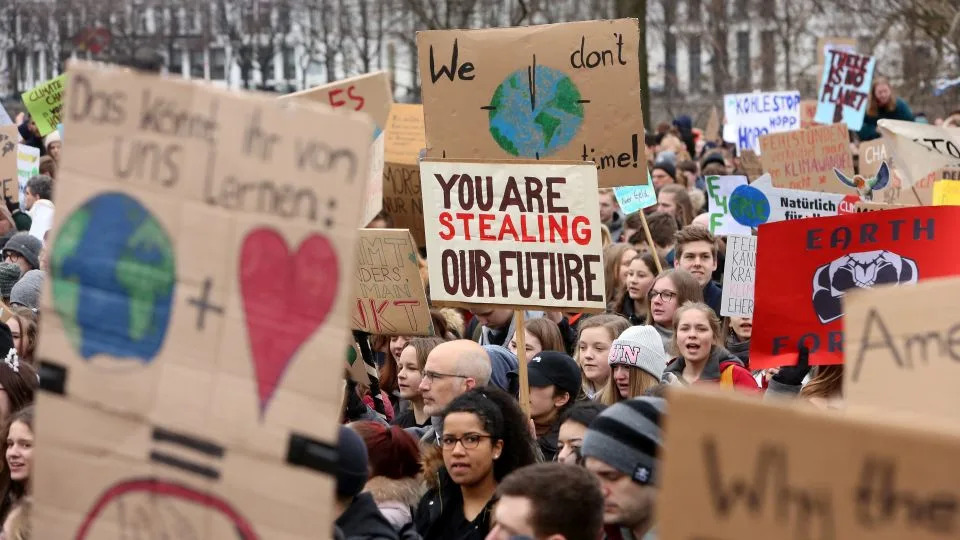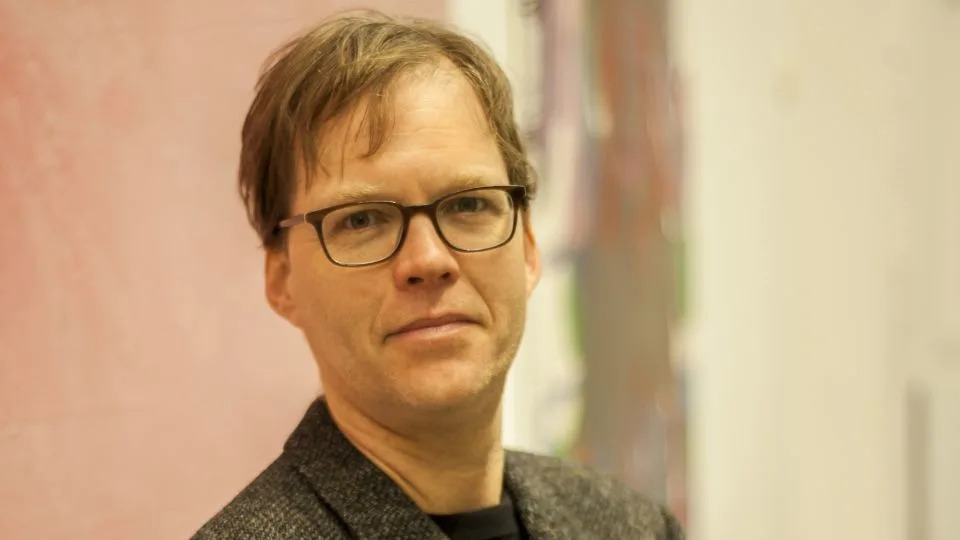Opinion by Paul Hockenos
Wed, June 12, 2024
The last time the European Union voted, five years ago, teenagers across the continent were taking to the streets en masse: demonstrating for serious climate protection policies. They had no say, they inveighed, on decisions that would define their lives for years to come. “We’ll go to school if you keep the climate cool,” they taunted with verve, justifying their audacious skipping of class to protest.
Surveys show that young people (usually the 18 to 24-year-old bracket) in democracies on both sides of the Atlantic tend to cast their ballots for more reform-minded, left-of-center parties, rather than those on the right. This was why European conservatives had long opposed giving 16 and 17 year-olds the vote — even though older teenagers are legally permitted to work, drive vehicles and pay federal income taxes.
And, indeed, in the 2019 European Parliamentary elections, the youngest voters turned out in droves, expressing their concerns about global warming in what observers called a “Green wave.” A third of Germany’s young people voted for the Greens.
Fast forward five years, and it’s a very different story.
This European Parliamentary election, which wrapped up on Sunday, was the first in which Germans as young as 16 were eligible to votesince the age was lowered from 18.
And in Austria, Belgium, Malta and Greece, 16 or 17-year-olds had the right to cast their ballot. These minors finally had a say on those issues that will affect them for years, if not decades, to come.
What a shock then – and coming days after the 80th anniversary of D-Day — that many German first-timers threw their votes disproportionally behind the far-right Alternative for Germany (AfD) party. In this election, 16% of 16 to 24-year-olds voted AfD — up 11 percentage points from five years ago. (To be sure, the majority of teens didn’t vote for the far right. But the increase in the number who did is nonetheless alarming.)
The AfD, whose members repeat banned Nazi slogans and tout barely veiled racism and Islamophobia, claimed almost as much of the youth vote as the victorious Christian Democratic Union-Christian Social Union (CDU/CSU) alliance, and far more than the Greens.
Exit polls show that the topic of migration swung many voters —– of all ages — to the right. A full 95% of German AfD voters said Germany should limit the flow of foreigners and refugees into Germany. Nearly as many said they don’t care if the AfD is an extreme right-wing party, as long as it addresses the most important topics.
The latter assertion is the more unnerving as the AfD has made no secret of its extremist credentials. Just before the election, on May 20, the party’s lead candidate, Maximilian Krah, announced that members of the Nazis’ notorious paramilitary troops, the SS, weren’t automatically criminals. (Hitler’s elite forces were integral to carrying out the Holocaust, in which six million Jews were murdered, as well as brutally stifling domestic opposition to the dictatorship.)
The AfD responded by pulling Krah from the campaign trail but leaving him atop the slate. On Monday, as other scandals around him mounted, it decided to remove him from their new list of EU parliamentarians.
The remark was so offensive – and in general the AfD’s politics so much more radical than those of its far-right peers in Europe – that the European Parliament’s Identity and Democracy group, an alliance of populist right-wing parties that includes Marine Le Pen’s French National Rally, expelled the AfD from its ranks.

High school students demonstrate against global warming on March 1, 2019 in Hamburg, Germany. - Adam Berry/Getty Images/File
This year, the AfD’s menagerie of scandals seemed to grow longer by the week. The party is under surveillance from Germany’s intelligence service for the threat it poses to democracy. The agency could recommend that it be banned completely from politics. And then a recent German investigation found that 28 AfD members serving in German legislatures had been convicted of violence-related crimes, including verbal violence and incitement to hatred.
Not exactly the credentials of a party you would think would appeal to the next generation of German voters.
But this about-face of Germany’s youngsters doesn’t come out of the blue. German surveys show a general unhappiness with the post-pandemic economic and political conditions. “It seems as if the coronavirus pandemic left [young people] irritated about our ability to cope with the future, which is reflected in deep insecurity,” concluded the authors of “Jugend in Deutschland 2024.” The issues most responsible: personal finances, professional opportunities, the health sector, housing and social recognition.
The AfD addresses none of these issues directly but rather posits the termination of migration, and less EU control, as a cure-all for all of them.
And it’s not restricted to Germany either: in recent elections in Portugal, Italy, Sweden, the Netherlands, and France, the youngest voters threw their support behind extreme nationalist and eurosceptic parties in greater numbers.
Certainly, say experts, the pandemic and social media play a key role in this, above all TikTok, a medium that the far-right has exploited to its advantage.
This shift in attitude among Europe’s young people — and especially Germans, who are confronted with the crimes of the Nazi dictatorship in history class —– is extremely worrying. But it’s still too early to conclude, as the BBC does, that “the image of the radical-right voter – typically white, male, non-graduate and, above all, old” has changed long term.
Young people can be especially impulsive, emotional, and are on a steep learning curve. Their dissatisfaction with the sluggish economic recovery, a pandemic that unfairly punished them (for nothing), and the world’s confluence of other crises is understandable.
But they must vent this pique constructively, as the extreme right has no answers to these problems (which, oddly, I’ve heard hard right voters say they recognize.) This rightist rebellion is a temper tantrum that impedes democracy from addressing its own shortcomings.
Casting a protest vote for a dangerous party can have profound consequences — among them a future that is even less propitious than the one these young people seem to fear so much.

Paul Hockenos - Hayyan Al-Yousouf
Editor’s Note:Paul Hockenos is a Berlin-based writer focusing on renewable energy in Europe. He is the author of five books on European issues, most recently “Berlin Calling: A Story of Anarchy, Music, the Wall and the Birth of the New Berlin.” The opinions in this article are his own.
No comments:
Post a Comment